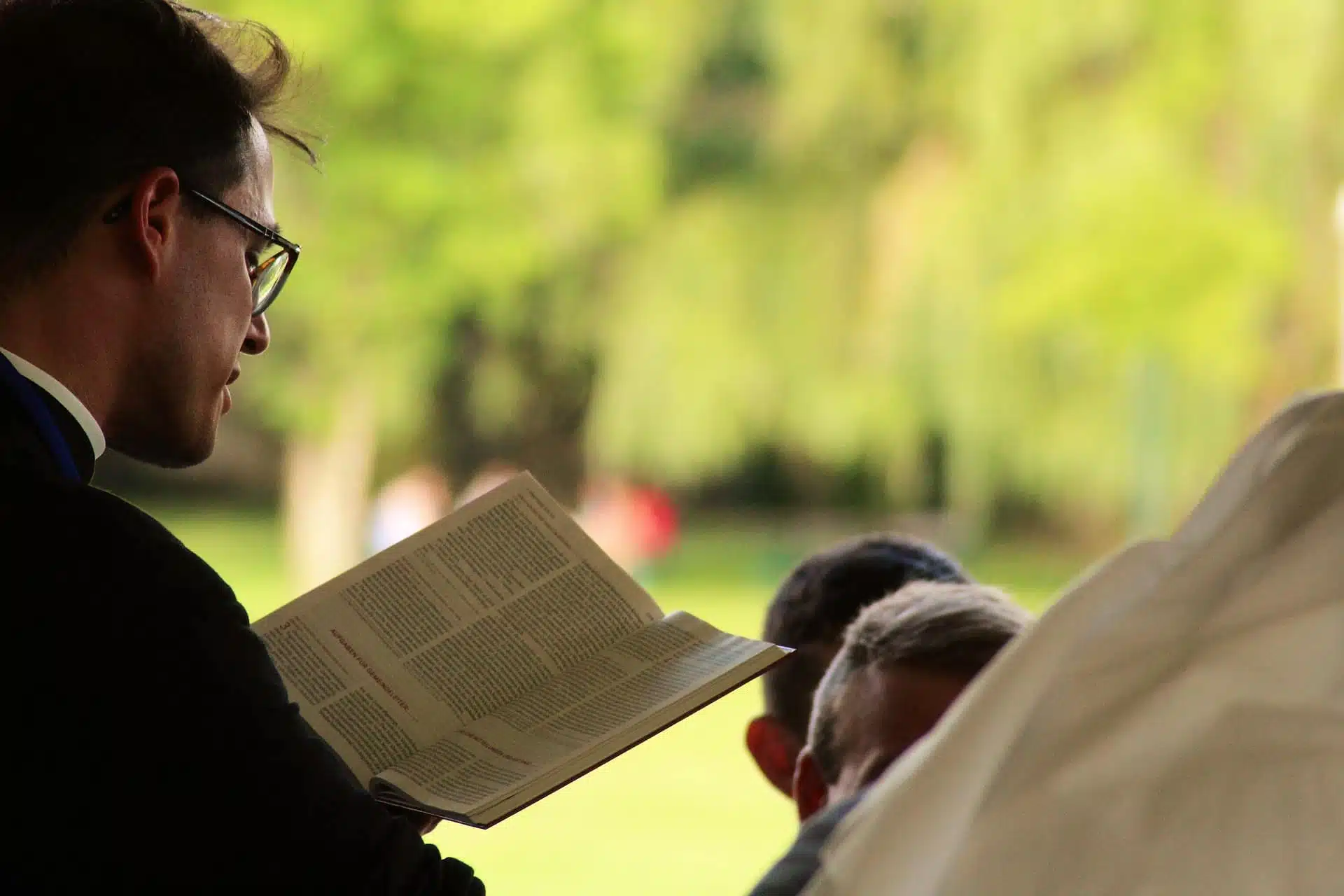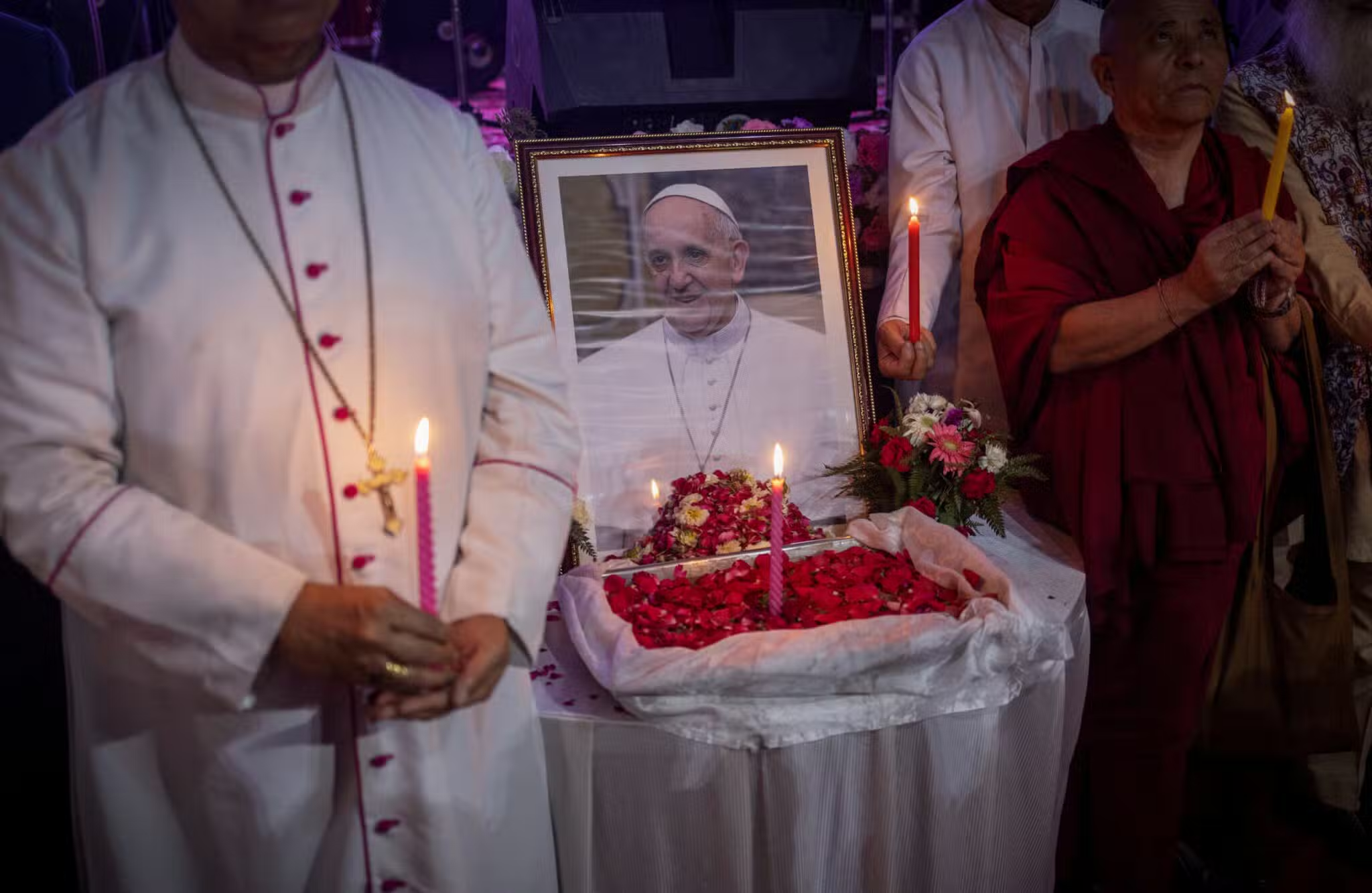When did the Roman Catholic Church begin to require celibacy before a man could be ordained a priest? Why? Doesn’t this suggest that marriage is inferior to celibacy? Why doesn’t the Roman Catholic Church allow a married clergy as do the Eastern Churches (Orthodox and Catholic)?
By itself, a decision to remain single could mean very different things (great selfishness, great generosity or inability to choose a spouse).
In Matthew 19:12, Jesus praises a celibacy practiced “for the sake of the Kingdom.” Optional, lifelong celibacy for men became more common with Egypt’s desert hermits in the third century. By the year 303, the Council of Elvira (southern Spain) had prohibited sexual intercourse between a married priest and his wife. By the mid-fourth century, marriage after ordination started to be prohibited.
There are various reasons—influence of cultic purity laws for Old Testament priests, possible conflict over inheriting Church property, the teaching of Jesus cited above and St. Paul’s teaching on celibacy (1 Corinthians 7:32-35).
The Orthodox Churches and Eastern Catholic Churches ordain married men as priests but select bishops from monks who have already made a lifelong promise of celibacy. A married priest who becomes a widower may not remarry.
The Second Lateran Council (1139) made celibacy mandatory for future priests in the Western Church. In the last 40 years the Catholic Church has allowed some married, Protestant ministers to be ordained priests after they became Catholics. Most of these priests are not in full-time parish ministry.
In 1967, through his encyclical On Priestly Celibacy, Pope Paul VI reaffirmed the Catholic Church’s rule about this. Section 1579 of the Catechism of the Catholic Church says that “accepted with a joyous heart celibacy radiantly proclaims the Reign of God.”
A Gospel-based celibacy does not devalue marriage; it is another way of serving the Lord. What matters most for both vowed celibates and married people is generous faithfulness.
Ask a Franciscan appears monthly in St. Anthony Messenger. Click here to learn more!









7 thoughts on “Origins of the Celibacy Rule”
“Now the Spirit speaks expressly, that in the latter times some shall depart from the faith, giving heed to seducing spirits, and doctrines of devils; speaking lies in hypocrisy; having their conscience seared with a hot iron; forbidding to marry, and commanding to abstain from meats, which God has created to be received with thanksgiving of them which believe and know the truth.”
I Timothy 4:1-3
Apostle Paul
New Testament
Holy Bible/Gospel
— A Catholic priest and graduate of Notre Dame University, informed me many years ago that the reason the Catholic priests were forbidden to marry millennium ago was so that the church inherited the priests’ money and possessions rather than a wife and/or child/children.
Given the heinous results of the love of money rather than obedience to God, see: 1 Tim. 6:10, and the known and tolerated sexual abuse of many victims within the Catholic church for generations, will the Catholic church continue to disregard respect for the Word of God, whom established the sanctity of marriage as a reflection of Christ and the church?
See Ephesians 5:1-32
Married priests are often more money grubbing than celibate. In Ukraine and Armenia they formed a basically priestly caste, father to son, like Eastern religions. It is better the money go to the poor via Christ’s Church which only distributes it by setting up schools, hospitals etc. than private family purses. And no muh St. Peter because all the Apostles left their wives for the kingdom. Continuing your analogy, Christ is married to the church, a priest is also married to the church, so is a married priest a bigamist?
Right, and actually, Paul said; “A bishop then must be blameless, the husband of one wife, vigilant, sober, of good behavior, given to hospitality, apt to teach;
Not given to wine, no striker, not greedy of filthy lucre; but patient, not a brawler, not covetous;
One that rule’s well his own house, having his children in subjection with all gravity;
(For if a man know not how to rule his own house, how shall he take care of the church of God?)” 1 Timothy 3:2-5.
But Jesus himself never had a wfe, did he violate the principle you just raised? I think NO. When Jesus finally chose his apostles, those married and those who did not, he encouraged the married ones that although they left their wives and children for the sake of his ministry, they are going to be rewarded in a hundred folds. I believe that after Jesus’ ascended into heaven, non of the twelve had carried their wife to the different places that they went to spread the Good News.
Wrong the apostles did take wives along with them in their ministry. Once again your not following the Word of God.
“Have we not the right to take along with us a believing wife, as do the rest of the apostles and the Lord’s brothers and Cephas (Peter)?” 1 Corinthians 9:5
My marriage was annulled ,since my parents insisted I had to get married because I was
Pregnant.The night before the wedding I panicked, so the priest who would married us the next day told me you should get married it would give a name to your child.I was 18 and a
Student ,short story I met that priest at 25years old,he did have is “laïcisation “.
We were going to church with our three children .Happy for 53 years now ,I visit him eve-
ry day he is 91years old and as Alzheimer’s disease,God’s will.
If you knew how we met, I really think it was “la volonté de Dieu”.
Sorry for my English and the way it is written I’m not a Typist and I am French.
No, Alzheimer’s is not God’s will, rather it is Gods will that we (that believe) “prosper and be in health, even as our souls prosper” 3 John 1:2, and again, both Isaiah and Peter tell us that “by his strips we ‘are’ (Isaiah 53:5) and ‘were’ (1 Peter 2:24) healed.” This is Gods will.
Comments are closed.